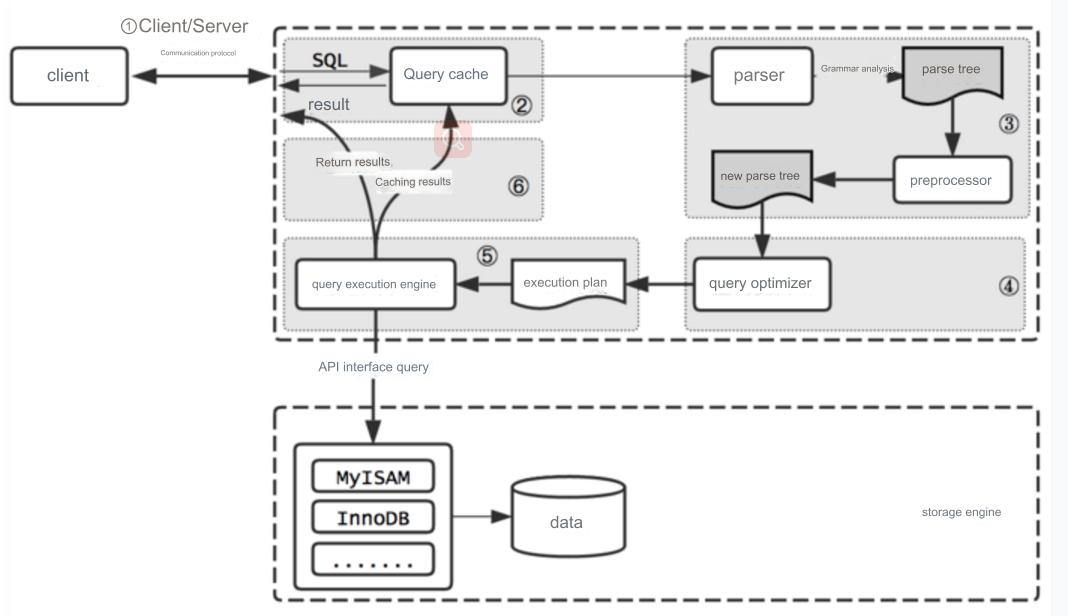Optimizing MySQL indexes is a crucial strategy for enhancing database query performance. By designing indexes effectively, optimizing query conditions, and implementing appropriate optimization strategies, significant improvements in MySQL database query efficiency and overall performance can be achieved. In database systems, indexes play a vital role in boosting query performance. As a widely used relational database management system, the optimization of MySQL indexes directly affects system performance and user experience. This article will explore the fundamental concepts of MySQL indexes, the leftmost prefix matching principle, common scenarios of index invalidation, optimization strategies, and applicable use cases.
1. Basic Concepts of MySQL Indexes
An index is a data structure in a database management system that sorts the values of one or more columns in a database table, allowing for rapid access to specific information within the table. MySQL supports various types of indexes, including B-Tree indexes, hash indexes, and full-text indexes, with B-Tree indexes being the most commonly used.
2. Leftmost Prefix Matching Principle
The leftmost prefix matching principle is an important rule when using composite indexes in MySQL. It requires that the query conditions must start with the leftmost column of the composite index and match consecutively; otherwise, the index will not be fully utilized. This means that when designing composite indexes, the order of index columns should be arranged based on the actual query conditions.
3. Common Scenarios of Index Invalidation
*Using SELECT : When using SELECT * in a query, MySQL cannot leverage the index for summarization, which may lead to inefficient query performance.
Calculations or Functions on Indexed Columns: This can invalidate the index, as MySQL needs to perform calculations or transformations on the index column values before comparison, making it unable to utilize the index directly.
LIKE Pattern Matching Starting with Wildcards: For example, LIKE '%value' will prevent MySQL from using the index for lookups.
Implicit Type Conversion Due to Mismatched Types: When the data type in the query condition does not match the data type of the index column, MySQL performs implicit type conversion, which can also lead to index invalidation.
Comparing Two Columns: For instance, qty < total, if neither of these columns is indexed or not indexed appropriately, such comparisons may cause index invalidation.
Using OR Instead of UNION: When querying multiple index columns using OR, replacing it with UNION often yields better performance because UNION can utilize the index for each subquery.
Using NOT IN Instead of NOT EXISTS: In most cases, queries with NOT EXISTS are more efficient than those with NOT IN because NOT EXISTS can leverage indexes, while NOT IN may result in full table scans.
4. Index Optimization Strategies
Reasonable Index Design: Design appropriate composite indexes based on actual query requirements and pay attention to the order of index columns.
*Avoid SELECT : Specify only the necessary columns in queries to reduce data transfer volume and facilitate index utilization.
Optimize Query Conditions: Avoid performing calculations or using functions on indexed columns, maintaining direct correspondence between query conditions and index columns.
Use LIKE Pattern Matching Judiciously: Avoid using wildcard-starting patterns; if necessary, consider using full-text indexes.
Ensure Data Type Matching: Ensure that the data types in query conditions match the data types of the index columns to avoid implicit type conversion.
Optimize Comparison Operations: Whenever possible, adjust table structures and query logic to avoid comparing two columns within a query.
Use UNION and NOT EXISTS Appropriately: Replace OR with UNION and NOT IN with NOT EXISTS in suitable scenarios to enhance query efficiency.
5. Application Scenarios for MySQL Indexes
High-Frequency Query Fields: For fields that are frequently queried, establishing indexes should be prioritized to improve query speed.
Uniqueness Validation: For fields requiring uniqueness, creating unique indexes ensures data uniqueness while enhancing query efficiency.
Foreign Key Columns: In join queries, foreign key columns are often queried frequently, so indexes should be established to improve join query efficiency.
Sorting and Grouping Fields: For queries that require sorting or grouping of results, indexes should be created on the sorting and grouping fields to enhance sorting and grouping speeds.
Conclusion
Optimizing MySQL indexes is a key method for enhancing database query performance. By designing indexes effectively, optimizing query conditions, and implementing appropriate optimization strategies, we can significantly improve the efficiency and overall performance of MySQL databases. In practical applications, it is essential to choose the right index strategies and optimization methods based on specific business needs and query patterns.


